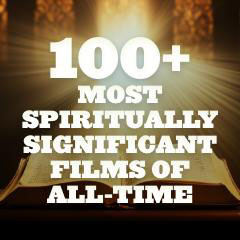
|
Top 100 Spiritually-Significant Films Part 3 |
![]()
Part 1 | Part 2 | Part 3 | Part 4

|
(Part 3, ordered alphabetically by original title with year of release and director) |
|
51. The Matrix, 1999, Andy & Larry Wachowski A thought-provoking, science-fiction view of the future, where advanced, artificial intelligence machines have conquered the world and are using living human beings as batteries to keep the machines running. The humans are in suspended animation, being entertained by a false reality transmitted into their brain by the "Matrix" so they will relax and keep providing power. A few, led by technology guru and philosopher Morpheus (Laurence Fishburne) and computer hacker Neo (Keanu Reeves) - interpreted to be the "One" (or Messiah), have escaped this illusion-world and are leading a rebellion against the Matrix. |

|
|
52. Mies vailla menneisyyttä ("The Man Without A Past"), 2002, Aki Kaurismaki The second part of auteur Aki Kaurismäki's "Finland" trilogy - it opens with a man (Markku Peltola) getting off a train in Helsinki, where he is attacked by thugs. Written off as dead by his doctors, this unfortunate traveler returns to consciousness, but has amnesia. He flees the hospital and lands in the care of a kind-hearted family who share their meager meals and the shambles of their home with him. With their help and the ministry of a Salvation Army nurse named Irma (Kati Outinen), one of the ladies who works in the soup kitchen, the enigmatic "M" finds enough strength and confidence to strike up a cautious romance with her. |
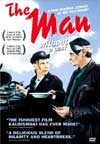
|
|
53. The Miracle Maker, 2000, Derek W. Hayes & Stanislav Sokolov A TV movie, originally a BBC production - a simple, modest, literal retelling of the gospel story of the ministry and passion of Christ (with both animated and claymation scenes), voiced by Ralph Fiennes. It does little more than respectfully present the bare events of the gospel narratives, 'without adornment or invention, without ideosyncratic “explanations” or editorial spin, without elaborations for the sake of amusement or excitement'. |
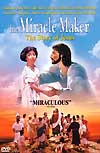
|
| The Mirror, 1975, Andrei Tarkovsky - see Zerkalo | |
|
54. The Mission, 1986, Roland Joffé About 18th century Spanish Jesuit missionaries, as they bring the Gospel to native people in the jungle of South America. Two men, one a priest (Jeremy Irons) for many years, and another a recent convert (Robert De Niro), formerly a slave trader and mercenary himself, make very different choices. |

|
|
55. Nema-ye Nazdik ("Close-Up"), 1990, Abbas Kiarostami Close-Up is a true story (blending documentary and fiction) that takes place over a forty day period in the life of mild-mannered Hossain Sabzian, a shiftless, misguided and unbalanced printer's assistant and art film fanatic. Sabzian is a huge fan of popular Iranian director Mohsen Makhmalbaf (director of Gabbeh and The Cyclist). He is eventually revealed as a film-maker imposter, arrested and brought to trial. |

|
|
56. The Night Of The Hunter, 1955, Charles Laughton A sparse, starkly-filmed and tense drama, Charles Laughton's only directorial effort for this very unpopular film at the time of its release. About two children fleeing psychopathic preacher/stepfather Rev. Harry Powell (Robert Mitchum) with "LOVE" and "HATE" tattooed on his knuckles, featuring a remarkable performance from Lillian Gish as a loving matron who shelters the two children. |

|
| Not of This World, 1999, Giuseppe Piccioni - see Fuori dal mondo | |
|
57. Offret—Sacrificatio ("The Sacrifice"), 1986, Andrei Tarkovsky Tarkovsky's final film, a depressing, thoughtful, slow-paced allegorical drama about 24 hours in the lives of eight friends and family members on a remote Swedish island, who learn about an impending nuclear blast during the birthday celebration for one of the patriarchs - aging professor Alexander (Erland Josephson). |

|
|
58. On The Waterfront, 1954, Elia Kazan On the surface, a tale of union corruption and mob control, told through the story of ex-prize fighter Terry Malloy (Marlon Brando) turned longshoreman, who courageously struggles to stand up to his corrupt union bosses for what he knows to be right. |
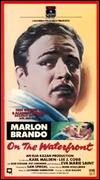
|
| Open City, 1945, Roberto Rossellini - see Roma, città aperta | |
|
59. Ordet ("The Word"), 1955, Carl Theodor Dreyer A treatise on faith and compassion, testing and perseverance through trials, based on a play by Lutheran minister Kaj Munk, a pastor murdered by the Nazis. The film is a wrenching study of the spiritual desolation and intricate emotional relationships in the rural household of a Danish farming family, led by widowed patriarch Morten Borgen (Henrik Malberg). He is the father to three sons, and has a continuing feud over religious dogma with Peter Skaedder (Ejner Federspiel), a fundamentalist preacher. |
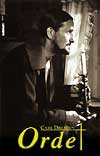
|
|
60. La Passion De Jeanne D'arc ("The Passion of Joan of Arc"), 1928, Carl Dreyer An artistic masterpiece of silent cinema about the courageous sufferings of a French military leader and martyred saint, Jeanne D'Arc (1412-1431), with Renee Maria Falconetti (in her sole film) as the title character in a transcendent performance. In this spiritual and emotional drama filmed entirely with close-ups and medium shots, she is confronted, cross-examined and questioned by a jury of French ecclesiastics, threatened with torture for heresy, and then executed by being burned to death at the stake. |
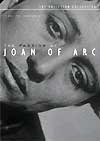
|
|
61. The Passion Of The Christ, 2004, Mel Gibson A forcefully-presented, emotionally-powerful film that provoked great controversy for its bloody and violent depiction of the final hours and crucifixion of Jesus (Jim Caviezel). Based on all four gospels and the visions of two nuns (the 17th century Mary of Agreda and the 18th century Anne Catherine Emmerich), it journeys through the fourteen stations of the Cross as it follows the last twelve hours of his life - from Gethsemane to Golgotha. |

|
|
62. Peter and Paul, 1981, Robert Day A made-for-TV movie mini-series about two of Jesus' beloved disciples, Peter the Fisherman (Robert Foxworth) and Paul of Tarsus (Anthony Hopkins). The film tells the epic story of early Christianity following the crucifixion and resurrection, literally faithful to its Biblical source. It depicts the precarious struggles of the apostles (Peter and Paul in particular) to keep the faith. This dramatic presentation follows the pair, together and separately, through three epochal decades. |
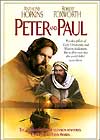
|
|
63. Ponette, 1996, Jacques Doillon The realistic and simple story of a 4 year-old, chubby-cheeked French preschool girl named Ponette (Victoire Thivisol, who won the Best Actress prize at the Venice Film Festival), angry and devastated after losing her mother in a car crash. Told from her point of view, she must grapple with the tragedy and attempt to accept the loss and death - first by withdrawing, then by waiting for her mother to come back or asking questions, or by using magic chants, offerings and prayers to God. In the closing sequence (interpreted as either a fantasy or a miracle), she is 'reunited' with her mother. |
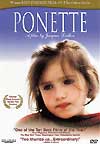
|
|
64. The Prince Of Egypt, 1998, Brenda Chapman, Steve Hickner, Simon Wells A visually-spectacular animated (and musical) tale from DreamWorks taken from the Book of Exodus (with some help from Cecil B. DeMille's The Ten Commandments), about "Two brothers united by friendship divided by destiny" -- Egyptian prince Moses (voice of Val Kilmer) - a Hebrew, and heir to the throne of Rameses (voice of Ralph Fiennes). With 2 and 3-D animated sequences of a chariot race, the ten plagues, the 'burning bush', and the parting of the Red Sea. |
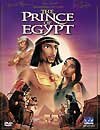
|
|
65. La Promesse, 1996, Jean-Pierre & Luc Dardenne A bleak and grim 'coming-of-age' Belgian film - 15 year-old Igor (Jérémie Rénier) and his unscrupulous, bullying father Roger (Olivier Gourmet) both are engaged in an "immigration service" - they rent slum-like apartments to illegal immigrants and forge working papers for them (among other scams). But when the building inspector pays a surprise visit, one of Roger's immigrant workers Amidou (Rasmane Ouedraogo) falls off a scaffold in his hurry to hide and is critically injured. Their lives begins to unravel, particularly when Igor makes a promise to the dying Amidou that he will care for his wife, Assita (Assita Ouedraogo) and infant boy. |
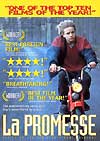
|
|
66. Punch-Drunk Love, 2002, P.T. Anderson In this unconventional, downbeat and anguished romantic comedy, Barry Egan (Adam Sandler) is a small business owner in San Fernando Valley which produces decorative toilet plungers, with seven sisters whose hen-pecking has lessened his interpersonal skills and kept him an unlovable, maladjusted bachelor. When a mysterious woman named Lena (Emily Watson), a shy British friend of one of his sister's, enters his life, he awkwardly begins to establish romantic connections. |
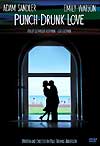
|
|
67. Roma, città aperta ("Open City"), 1945, Roberto Rossellini Set in Rome in 1944 and based partly on the real-life story of priest Don Morosi, this is an excellent example of Italian neo-realism film-making. This ensemble, cinema verite film provides an account of the Nazi occupation in war-torn Rome during World War II and the brave, life-affirming local citizens of the underground who persevered and stood in resistance against the regime, even in the face of capture, torture, and death. Anna Magnani stars as Pina, a pregnant widow engaged to be married, Marcello Pagliero as resistance leader Giorgio Manfredi, and Aldo Fabrizi as Don Pietro, a sympathetic priest who helps the resisters. |
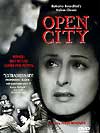
|
|
68. Sansho Dayu ("Sansho the Bailiff"), 1954, Kenji Mizoguchi A haunting masterpiece of engaging, contemplative film-making about a noble family broken apart by exile in 11th century medieval Japan. Two children of the exiled governor, a brother and sister, are sold into slavery to a corrupt tax collector Sansho (Eitaro Shindo). Now adults, brother Zushio (Yoshiaki Hanayagi) and sister Anju (Kyoko Kagawa) know of their noble birth and their father's compassionate teachings on mercy, but have to work as servants under harsh and oppressive conditions. Zushio, in particular, forgets the teachings of his father and has become barbaric, but ultimately questions what he has become. |
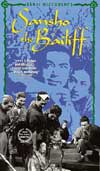
|
|
69. Schindler's List, 1993, Steven Spielberg Steven Spielberg's Best Picture-winning black and white film about Holocaust-era Germany - based upon the true story, with the tagline: "Whoever saves one life, saves the world entire." Profit-minded German businessman Oskar Schindler (Liam Neeson) uses his factory to save over 1,000 Polish Jews from being deported to Auschwitz. |

|
|
70. Secrets & Lies, 1996, Mike Leigh This melodramatic film, 1996's Palme D'Or winner at Cannes, focuses on a lonely and isolated, middle-aged white British woman named Cynthia Rose Purley (Brenda Blethyn) -- unliked by even her own family. She is contacted by her successful black daughter, Hortense (Marianne Jean-Baptiste), now a 27-year old black optometrist who she put up for adoption years ago. Her wealthy brother Maurice (Timothy Spall), a photographer who she hasn't seen in a few years, exclaims the film's theme: ""Secrets and lies...We're all in pain! Why can't we share our pain?" |
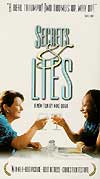
|
71. The Seventh Seal (Det Sjunde Inseglet), 1957, Ingmar Bergman One of Bergman's influential classics and a crucial art film of the 50s -- characterized as a stark, slow, grim, black and white film set in the Middle Ages. About a weary, crusading Knight (Max von Sydow) who seeks answers about life, death, and the existence of God as he plays an allegorical chess game against the black-robed Grim Reaper/Death (Bengt Ekerot) during the Black Plague. |
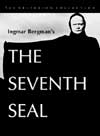
|
|
72. Shadowlands, 1993, Richard Attenborough A film adaptation of the play by William Nicholson about C.S. Lewis (Anthony Hopkins), known as “Jack” to his friends -- a celebrated and accomplished Christian apologist, scholar and author of the Narnia books. In this film, Lewis unexpectedly finds love with an American divorceé named Joy Gresham (Debra Winger), whom he married, but then their lives are soon shattered by her tragic death from cancer in 1959. |
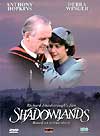
|
|
73. The Shawshank Redemption, 1994, Frank Darabont "Fear can hold you prisoner. Hope can set you free." Adapted from a Stephen King novella titled Rita Hayworth and the Shawshank Redemption by screenwriter/director Frank Darabont (his debut film), this thought-provoking, transcendent film tells about the life-term imprisonment of alleged murderer and banker Andy Dufresne (Tim Robbins) in the Shawshank State Prison in Maine. His entrepreneurial lifer friend Ellis "Red" Redding (Morgan Freeman) expresses the film's existential theme: "Get busy livin' or get busy dyin'." |
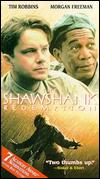
|
|
74. Signs, 2002, M. Night Shyamalan A science-fiction film about a paranormal experience - the mysterious, unexplained appearance of a 500-foot crop circle on a Bucks County, PA farm owned by ex-Reverend Graham Hess (Mel Gibson) and his family (Joaquin Phoenix, Rory Culkin, and Abigail Breslin). Hess has retreated to the farm after having experienced the "senseless" death of his beloved wife six months earlier in an accident and the denouncement of his faith -- and now the crop circles further test his beliefs. |

|
|
75. The Sixth Sense, 1999, M. Night Shyamalan A very successful film, with a twist ending, by writer/director Shyamalan that examines the intriguing question of the existence of life after death. A psychological thriller about child psychologist Dr. Malcolm Crowe (Bruce Willis) who counsels haunted 6 year-old patient Cole Sear (Haley Joel Osment), who sees the spirits of 'dead people' all around him. |
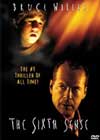
|
|
|
|